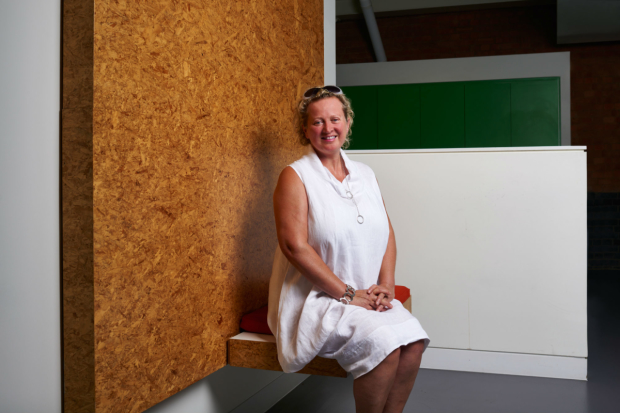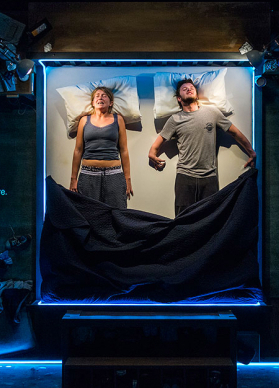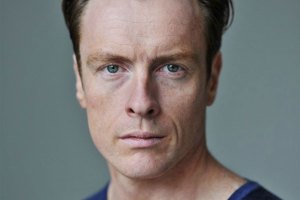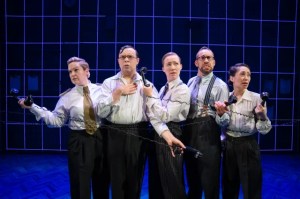Jenny Sealey: People are fearful of difference
The artistic director of disability-led theatre company Graeae on her life in theatre, directing the 2012 Paralympic Opening Ceremony and the company’s latest hit ”The Solid Life of Sugar Water”

© Micha Theiner
How did you get into the performing arts?
I started ballet when I was six and after I went Deaf from a bang on the head age seven, my ballet teacher said it did not matter that I couldn't hear the music, I could just follow the person in front. Ballet became my safe bubble away from the stress of trying to lip-read at school and struggling to keep up. I did a BA (Hons) in Performing Arts at Middlesex Poly majoring in dance and choreography, but it was there that acting became my ambition.
What was it like directing the Paralympic opening ceremony?
This was the most extraordinary time of my life and even now when I watch the highlights I get goose pimples to think that Bradley Hemmings [co-director with Sealey of the Paralympic opening ceremony] and I and our wonderful creative team and cast did that. The pressure was immense as we knew this was a once in a lifetime opportunity to place a large skilled cohort of Deaf and disabled people centre stage within a human rights narrative and say to the world 'look at us. we are magnificent’.
Did you ever feel as though being Deaf might hold you back from doing the things you wanted to do?
Being Deaf has shaped who I am and how I see the world. My dad told me I would have to work bloody hard to make sure being Deaf did not hold me back, and so I did and developed my personal coping strategies which I use to this very day.
Do you think the Paralympics had a big impact on raising disability awareness?
The [Paralympic] Opening Ceremony, the Unlimited Festival at Southbank Centre and the Paralympic Games were an incredible moment in time, but the feeling that we could go on to achieve anything was horrendously squashed by the inhuman government cuts to Independent Living Fund and Access to Work. Our ceremony was deeply rooted in human rights and this irony is not lost on me. Four years later we are still fighting for our rights. [Arts Council chairman] Peter Bazalgette wants a more diverse theatre ecology. But with the cuts Deaf and disabled people have faced he is concerned that we may once again become a thing of the past if we are unable to do our jobs. I wish I could be Minister for Disabled People and sort this damn mess out. We have a verbatim show called Sorry which is about the cuts and impact of all the above. I would like to perform this in the House of Commons to hit home to the decision makers the impact of their actions.
How far have we come in creating a more inclusive theatre world?
Arts Council England's (ACE) grant to the Ramps on the Moon [a network of organisations committed to offering opportunities to disabled performers] consortium is a testimony to Graeae paving the way pushing for inclusive casting and creative access. It is a fantastic opportunity for Deaf and disabled actors to be on wonderful stages and to work with some of the country's best directors. It feels optimistic in light of the cuts because we know the theatres, ACE, ITC, UK Theatre and What's Next? are all part of the mission to support us fighting these cuts and working towards a more inclusive industry.
What were the biggest hurdles for you coming through the creative ranks?
I think the hurdles have been the same as for other women directors and even more the same as BAME women directors. The creative sector was (and for a large part still is) white middle class non disabled men as gatekeepers. I suppose for me Graeae was different because the company believes in having a disabled person at the helm and when I got the job there were not many disabled directors out there. But now there are some wonderful ones who would certainly give me a run for my money!
If there was one thing you could change about the way people think about disability, what would it be?
People are fearful of difference and I would love to wave that wand to dispel that fear so that we can be equal players in life and access becomes everyone’s responsibility.
How would you describe Graeae to someone who hadn't heard of it?
A truly remarkable company which makes work like no other and makes theatre that matters and is much much more than a theatre company – it is a way of life.
Who has been the biggest influence on your life?
The late Marielaine Church (director Jonathan Church's mother) was my drama teacher Clarendon College FE Nottingham. She instilled within me that I could be an actor and that I was a creative person and I could make my way in that world. Jon Palmer who was Artistic Director of Interplay Theatre Leeds gave me my first directing job. I will forever be indebted to him. David Johnston (Theatre Centre, Nottingham Roundabout , Tangere Arts) and Sarah Weir (ACE, Legacy Trust) have been and still are invaluable mentors.
I just hope that we don't get too jaded to be creative
What was your big creative breakthrough?
Doing my first ever real directing on Mike Kenny's Stepping Stones with Interplay 20 years ago was a defining moment when I thought 'Oh my god, I think I might be able to do this'. I am now redirecting the play with Graeae's young Ensemble and they are a very different cast, so I hope I still know how to do it!
The Solid Life of Sugar Water is one of Graeae's current hits, how would you describe it?
It is a beautifully written, directed and acted play about a couple coming to terms with stillbirth. It’s about recovery, and it’s about communication. Jack gave me the play some years ago but I always instinctively knew that I was not the right director for it. So when Amit Sharma came on board as Graeae Associate Director I knew he was the person to take on this play.

How did you feel about the response to the show?
Stillbirth is something that is not talked about and it hits a nerve with anyone who has been through that or has had a miscarriage (I had a late miscarriage which is probably why I felt I could not direct this). The love and intensity between the couple and the complexity of sex could be about any of us. It is also beautifully funny in the mixed communication around sex about what we don't tell our partners. It is an epic play about what it is to be human.
What are your hopes for Graeae?
I am beyond excited about the Sugar Water tour and visiting new venues like The Dukes Lancaster and going back to Birmingham Rep and the National Theatre (latter for the first time in 35 years!). I am excited about seeing how our Ensemble grow and develop and what opportunities there are out there for them. The foundation of Graeae is fuelled by a passion for inclusion, equality and excellence and a quest to make truly accessible theatre. We still have a lot to learn, mistakes to make, explorations and experiments to try out and campaigns to fight. I just hope that the latter does not burn us out so we are too jaded to be creative. But hell, we are Graeae: a company that fights creatively so I eat my words… BRING IT ON!
What are your next projects?
I am directing a production of Romeo and Juliet with an all disabled cast at the National Theatre of Dhaka, Bangladesh and we have a small schools’ tour of Mike Kenny’s Stepping Stones performed by Graeae’s Ensemble as their showcase. Ramps on the Moon kick-starts with Roxanna Gilbert’s production of The Government Inspector at Birmingham Rep, so it is so exciting that so many Deaf and disabled actors are on national and international stages! Oh how I love my job. I am so unbelievably lucky.
Jenny Sealey is Artistic Director of Graeae Theatre Company. The Solid Life of Sugar Water by Jack Thorne is currently on UK tour, ending with a run at the National Theatre. For all dates and booking information, visit www.graeae.org












